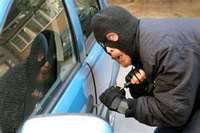Modern car technology has high stakes for consumer safety and has bred a new brand of car thief
 |
LOS ANGELES--Oct. 4, 2013: Blair Stover notes that an increasingly computerized automobile has ushered in a new variety of car thief. While on board computers have made many car monitoring tasks easier, the electronic nature of modern vehicles has also facilitated high tech auto theft. Blair Stover sheds lights on hackers cracking into electronic systems to easily unlock car doors or perform foul play that includes disabling the braking system altogether.
The electronic systems found in new cars communicate mostly on open computer networks. While this technology helps control gas mileage and other subtleties, concerns over the hijacking of acceleration and crash prep systems have auto makers scrambling to narrow cyber security gaps, according to reports from Blair Stover.
He points to the consulting work of hacker extraordinaire Charlie Miller and his partner Chris Velasek as part of the efforts to bolster car safety in an electronic age. The pair is helping car manufacturers better understand the implications of a computer operated automobile.
To fund their research, Miller and Velasek received a grant from the Defense Advanced Research Project Agency (DARPA). Blair Stoverpoints to the grant as indicative of the priority that car makers and agencies are placing on addressing existing gaps in network security.
As consultants, the duo now works with auto engineers to hack into car computers for identifying shortcomings and designing solutions. Their work has shown startling examples of hackers being able to jerk steering wheels at high speeds or clone remote keyless entry systems with little difficulty.
Mounting concerns over the vulnerability of on board diagnostics are affirmed in a July 8, 2012 article from privacy site Network World. The article cites the relative ease with which a security consultant was able to hack into the alarm system of a luxury BMW. A simple text message was then sent to the car's on board computer that started the vehicle. Perhaps even more alarming was the mere 3 minutes that elapsed to complete the process.
The role of on board computers in automobiles will continue to grow unabated. Recent advancements such as hands free parallel parking and alerts to potential accident risks may become largely standard in the near future. Blair Stover notes that a freshly minted industry of car security experts will rise accordingly.


